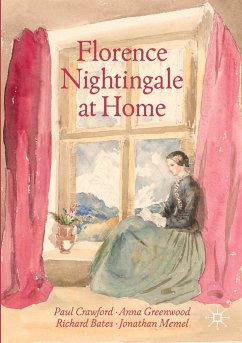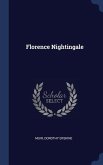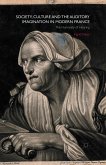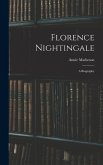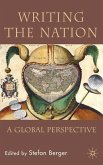Winner of the 2021/2022 People's Book Prize Best Achievement Award
Homes can be both comforting and troubling places. This timely book proposes a new understanding of Florence Nightingale's experiences of domestic life and how ideas of home influenced her writings and pioneering work. From her childhood homes in Derbyshire and Hampshire, she visited the poor sick in their cottages. As a young woman, feeling imprisoned at home, she broke free to become a woman of action, bringing home comforts to the soldiers in the Crimean War and advising the British population on the home front how to create healthier, contagion-free homes. Later, she created Nightingale Homes for nursing trainees and acted as mother-in-chief to her extended family of nurses. These efforts, inspired by her Christian faith and training in human care from religious houses, led to major changes in professional nursing and public health, as Nightingale strove for homely, compassionate care in Britain and around the world. Shedid most of this work from her bed after contracting the debilitating illness, brucellosis, in the Crimea, turning her various private homes into offices and 'households of faith'. In the year of the bicentenary of her birth, she remains as relevant as ever, achieving an astonishing cultural afterlife.
Homes can be both comforting and troubling places. This timely book proposes a new understanding of Florence Nightingale's experiences of domestic life and how ideas of home influenced her writings and pioneering work. From her childhood homes in Derbyshire and Hampshire, she visited the poor sick in their cottages. As a young woman, feeling imprisoned at home, she broke free to become a woman of action, bringing home comforts to the soldiers in the Crimean War and advising the British population on the home front how to create healthier, contagion-free homes. Later, she created Nightingale Homes for nursing trainees and acted as mother-in-chief to her extended family of nurses. These efforts, inspired by her Christian faith and training in human care from religious houses, led to major changes in professional nursing and public health, as Nightingale strove for homely, compassionate care in Britain and around the world. Shedid most of this work from her bed after contracting the debilitating illness, brucellosis, in the Crimea, turning her various private homes into offices and 'households of faith'. In the year of the bicentenary of her birth, she remains as relevant as ever, achieving an astonishing cultural afterlife.
"Florence Nightingale at Home makes a strong case for renewed attention to Nightingale's career as a nursing pioneer and as an imperial sanitary reformer. ... The book ... demonstrates the importance of the notion of domesticity for rethinking and rescaling analyses of social bodies, nations, empires ... ecologies." (Richard Bonfiglio, Victorian Studies, Vol. 65 (1), 2022)
"The depth of research is admirable: this book draws on materials within the Nightingale family archive and is also the first major study to be able to use all sixteen volumes of Lynn McDonald's Collected Works of Florence Nightingale ... . This book is a valuable read for scholars of Nightingale and those working more broadly on the history of medicine and Victorian domesticity, as well as the public with an interest in this famous historical figure." (Charlotte Wilson, BAVS Newsletter, Vol. 23 (2), 2023)
"This latest book on Nightingale makes an insightful contribution to the existing literature on the world's most well-known nurse, being the first to explore her domestic experiences and how the theme of home influenced her writings and work." (David Stewart, nottinghamnursinghistory.wordpress.com, July 7, 2021)
"Part of the pleasure in reading this thoughtful and well-executed collaborative work is the way in which the received narrative boundaries have been dissolved. ... For any student of Nightingale, or of gender and health in the nineteenth century, the authors offer a wonderfully detailed discussion of the past 40 years of scholarship assembled along the lines of home and domesticity." (Sioban Nelson, Social History of Medicine, March 12, 2021)
"The depth of research is admirable: this book draws on materials within the Nightingale family archive and is also the first major study to be able to use all sixteen volumes of Lynn McDonald's Collected Works of Florence Nightingale ... . This book is a valuable read for scholars of Nightingale and those working more broadly on the history of medicine and Victorian domesticity, as well as the public with an interest in this famous historical figure." (Charlotte Wilson, BAVS Newsletter, Vol. 23 (2), 2023)
"This latest book on Nightingale makes an insightful contribution to the existing literature on the world's most well-known nurse, being the first to explore her domestic experiences and how the theme of home influenced her writings and work." (David Stewart, nottinghamnursinghistory.wordpress.com, July 7, 2021)
"Part of the pleasure in reading this thoughtful and well-executed collaborative work is the way in which the received narrative boundaries have been dissolved. ... For any student of Nightingale, or of gender and health in the nineteenth century, the authors offer a wonderfully detailed discussion of the past 40 years of scholarship assembled along the lines of home and domesticity." (Sioban Nelson, Social History of Medicine, March 12, 2021)

